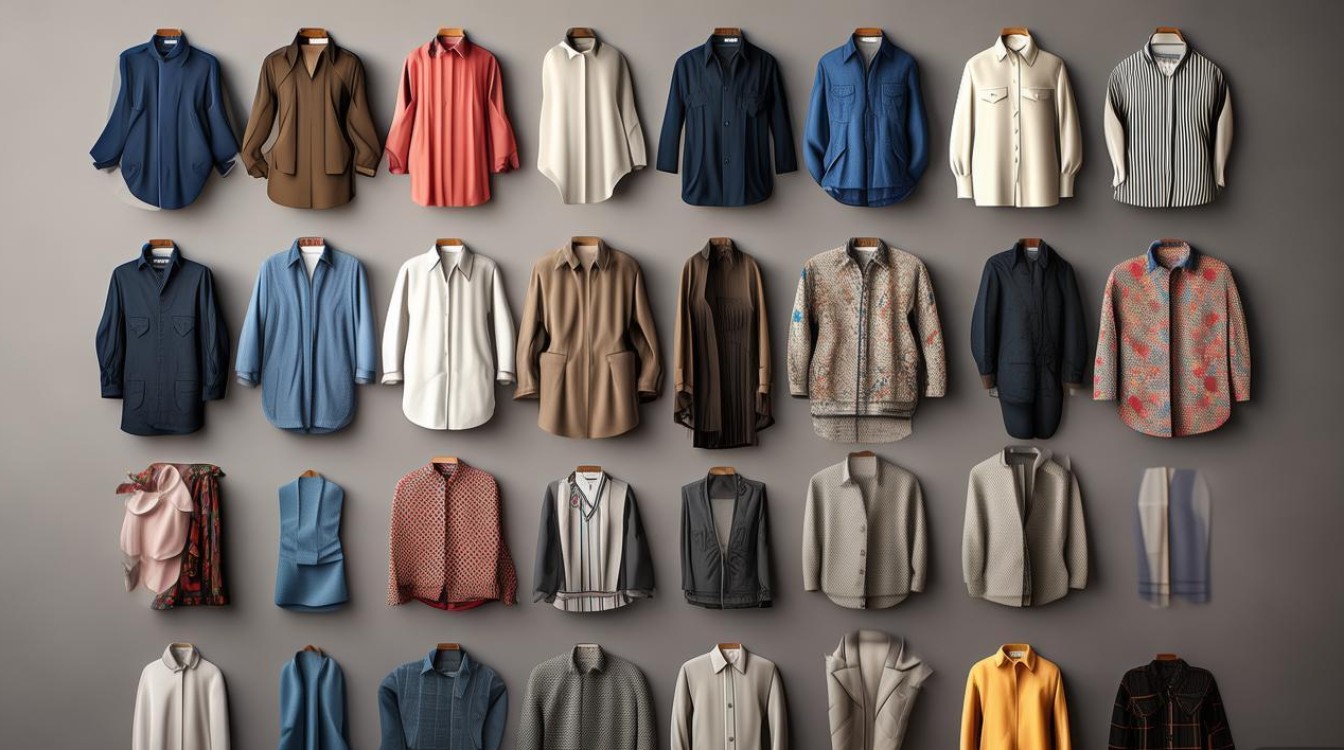下面我将为你提供一个全面的备考指南,包括:

- 高频问题及高分回答范例
- 核心词汇与短语
- 高分技巧与思路拓展
- Part 2 & 3 可能的话题延伸
Part 1: 高频问题及高分回答范例
Part 1 的问题通常是开放式的,旨在让你放松并谈论个人经历,回答时,不仅要直接回答,还要补充一两个原因或例子,让答案更丰富。
问题 1: What kind of clothes do you like to wear? (你喜欢穿什么样的衣服?)
-
低分回答:
- "I like to wear T-shirts and jeans." (过于简单,没有展开)
- "I like comfortable clothes." (回答正确,但比较笼统)
-
高分回答范例:
-
范例 1 (侧重风格):
"I'm quite into a casual and minimalist style. I prefer simple, well-fitted clothes in neutral colors like black, white, and grey. I find that not only are they versatile and easy to mix and match, but they also give me a sense of understated elegance." (我比较喜欢休闲和极简风,我偏爱合身的、颜色素净(如黑、白、灰)的简单衣物,我觉得它们不仅百搭、容易搭配,还能给我一种低调的优雅感。)
-
范例 2 (侧重场合):
"It really depends on the occasion. For everyday life, like going to university or running errands, I'm all about comfort, so I'd opt for a cozy sweater and a pair of joggers. However, when I'm meeting friends or going to a party, I might dress up a bit more in a stylish blouse or a dress to feel more confident and put-together." (这得看场合,在日常生活中,比如去学校或办事,我追求舒适,所以会选择一件舒适的毛衣和运动裤,但和朋友聚会或参加派对时,我可能会穿得更讲究一些,比如一件时髦的衬衫或连衣裙,让自己感觉更自信、更得体。)
-
问题 2: Do you like shopping for clothes? (你喜欢买衣服吗?)
-
低分回答:
- "Yes, I like it." / "No, I don't." (太简短)
- "I like shopping, but I don't have much money." (理由不够积极)
-
高分回答范例:
-
范例 1 (喜欢):
"Absolutely! I find it a great way to relax and treat myself. I particularly enjoy browsing in small, independent boutiques where I can find unique pieces that you wouldn't see in big chain stores. It feels like a treasure hunt discovering something that truly reflects my personal style." (当然喜欢!我觉得这是一种放松和犒劳自己的好方式,我特别喜欢逛一些独立的小精品店,在那里能找到在大连锁店看不到的、独一无二的单品,这就像一场寻宝,能发现真正反映我个人品味的东西,感觉太棒了。)
-
范例 2 (不喜欢):
"To be honest, I'm not a huge fan. I find the whole process quite overwhelming sometimes, with so many choices and crowds. I'd much rather shop online where I can take my time to compare prices and read reviews without any pressure. Plus, I try to follow a more sustainable approach, so I only buy something when I truly need it." (说实话,我不是特别热衷,有时候面对如此多的选择和拥挤的人群,整个过程会让我感到不知所措,我更愿意在网上购物,这样我可以从容地比较价格、查看评论,没有任何压力,我尽量遵循更可持续的消费方式,所以只有在真正需要时才会购买。)
-
问题 3: Do you think people pay too much attention to brands when they buy clothes? (你认为人们在买衣服时是否过于关注品牌?)
-
低分回答:
- "Yes, some people do." (没有个人观点和解释)
- "I think brands are important." (过于简单)
-
高分回答范例:
-
范例 1 (同意):
"I think there's a tendency for that, especially among younger generations. Brands are often heavily marketed as a symbol of status and quality, which can be quite persuasive. However, I personally believe that the price tag of a brand doesn't always equate to the actual quality or the suitability of the garment for you. It's more about the fabric, the cut, and how it makes you feel." (我认为确实有这种趋势,尤其是在年轻人中,品牌常常被大力宣传为地位和质量的象征,这很有说服力,但我个人认为,品牌的价格标签并不总是等同于服装的实际质量或适合度,更重要的是面料、剪裁以及它带给你的感觉。)
-
范例 2 (辩证看待):
"It's a double-edged sword. On one hand, some established brands do offer superior craftsmanship and durable materials, which justifies the higher price for many. On the other hand, the obsession with brands can lead to a 'throwaway culture' where people buy cheap, trendy items that fall apart after a few wears. So, I think it's about finding a balance – valuing quality over the logo." (这是个双刃剑,一些知名品牌确实能提供卓越的工艺和耐用的材料,这为许多人支付高价提供了理由,但另一方面,对品牌的痴迷可能导致“一次性文化”,人们购买便宜、潮流的衣服,穿几次就坏了,关键在于找到平衡——看重质量而非商标。)
-
Part 2 & 3: 核心词汇与短语
使用精准、多样的词汇是获得高分的关键。
服装类型
- 日常休闲: T-shirt, jeans, hoodie, sweater, cardigan, sweatpants, joggers, sneakers, trainers, trainers
- 正式/商务: suit, blazer, dress shirt, trousers, skirt, heels, formal shoes, tie
- 特定风格: vintage (复古的), second-hand (二手的), handmade (手工的), tailored (定制的)
风格与偏好
- 形容词: casual (休闲的), formal (正式的), comfortable (舒适的), stylish (时髦的), elegant (优雅的), trendy (潮流的), classic (经典的), minimalist (极简的), bohemian (波西米亚的), sporty (运动的)
- 动词短语: have a good sense of style (有很好的品味), dress up (盛装打扮), dress down (穿休闲装), follow a trend (追随潮流), stand out (出众), be in fashion / go out of fashion (过时)
购物与评价
- 名词: bargain (便宜货), discount (折扣), sale (促销), fitting room (试衣间), price tag (价格标签), brand (品牌), quality (质量), fabric (面料), material (材料), fit (合身度), durability (耐久性)
- 动词短语: try on (试穿), pick out (挑选), go on sale (打折), be worth the money (物有所值), be poor quality (质量差), fall apart (散架), be made of... (由...制成)
高分短语与句式
- 表达观点:
- "From my perspective,..." (在我看来...)
- "I'm a firm believer that..." (我坚信...)
- "It's fair to say that..." (可以说...)
- 举例说明:
- "For instance, I recently bought a..."
- "A case in point is my favorite jacket, which..."
- 表示对比:
- "On the one hand,... on the other hand,..."
- "While some people prefer..., I tend to..."
- 表达程度:
- "I'm particularly fond of..." (我特别喜欢...)
- "I'm not a huge fan of..." (我不是特别热衷...)
Part 2 & 3: 高分技巧与思路拓展
Part 1 高分技巧:
- 扩展答案: 回答问题后,立刻用一个 "because" 或 "and" 来补充一个原因或例子,这就是我们常说的 "Give a reason, give an example" 原则。
- 展示词汇: 不要总是重复 "clothes", "like", "good",尝试使用上面提到的核心词汇。
- 自然流畅: 不要像背书一样,可以加入一些自然的语气词,如 "Well...", "You know...", "Actually..."。
Part 2 可能的话题 (Describe a piece of clothing you like):
- Describe a piece of clothing you like.
- You should say:
- what it is
- what it looks like
- where you bought it
- and explain why you like it.
- You should say:
- 回答思路:
- 引入: "I'd like











